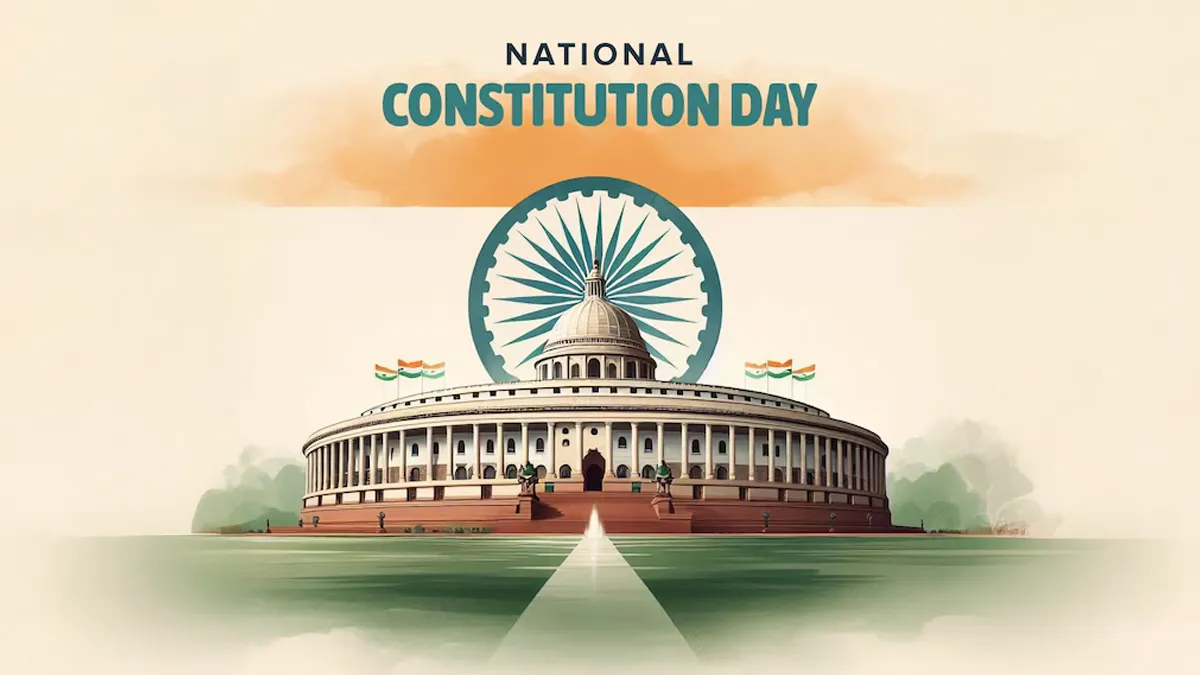
National Constitution Day 2025: The day, also known as Samvidhan Diwas, is far more than just a historical date; it is an annual reminder of the foundational principles that govern our democracy and guarantee rights to every citizen. Observed every year, this day marks the adoption of the supreme law of India, establishing the pillars of justice, liberty, equality, and fraternity. For women, the Constitution serves as a powerful shield and a roadmap to equality. We delve into the date, history, and profound significance of Constitution Day, highlighting the crucial fundamental rights and articles that every woman must know to assert her identity and stand protected under the law.
National Constitution Day, also known as Samvidhan Diwas, is observed annually on November 26.

Constitution Day marks the day the Constituent Assembly of India adopted the Constitution on November 26, 1949, after nearly three years of deliberations. The Constitution officially came into force two months later, on January 26, 1950, which is celebrated as Republic Day.
The Government of India formally declared November 26th as Constitution Day in 2015, under the Ministry of Social Justice and Empowerment, to mark the 125th birth anniversary of Dr B. R. Ambedkar, who is widely regarded as the chief architect of the Indian Constitution. Before 2015, November 26th was informally observed as National Law Day.

The day reaffirms the supremacy of the Constitution, which establishes India as a sovereign, socialist, secular, and democratic republic. It serves as a tribute to Dr B.R. Ambedkar and the other framers who shaped the nation's legal foundation and defined the core values of the Republic.
The primary goal is to promote constitutional values, justice, liberty, equality, and fraternity among all citizens and to encourage a deeper understanding of fundamental rights and duties. The Preamble begins with "We, The People of India," emphasising that sovereignty vests in the citizens, and the Constitution empowers them to uphold and protect democratic principles.

The Indian Constitution provides a robust framework to combat discrimination and ensure gender justice. These articles are the most vital tools for women's empowerment:
1. Right to Equality (Article 14)
What it says: The State shall not deny to any person equality before the law or the equal protection of the laws within the territory of India.
Why it matters: This is the bedrock of gender equality, ensuring that women are treated equally to men in legal, professional, and civic matters.
2. Prohibition of Discrimination (Article 15)
What it says: The State shall not discriminate against any citizen on grounds only of religion, race, caste, sex, or place of birth.
Why it matters: Article 15(3) is a powerful provision that allows the State to make special provisions for women and children (e.g., reserving seats in local bodies or providing special schemes) to rectify historical disadvantages.
3. Equality in Public Employment (Article 16)
What it says: Guarantees equality of opportunity for all citizens in matters relating to employment or appointment to any office under the State.
Why it matters: This ensures fair and equal access for women to government jobs and positions without bias based on gender.

Don't Miss: What Is A Fridge Cigarette? Inside Gen Z’s Latest Obsession
4. Right to Life and Personal Liberty (Article 21)
What it says: No person shall be deprived of his life or personal liberty except according to procedure established by law.
Why it matters: Judicial interpretations have expanded this right to include the right to live with dignity, the right to health, and the right to privacy, including the right to safe abortion and protection from sexual harassment (as affirmed in the Vishaka Guidelines).
5. Directive Principles (Article 39)
What it says: Directs the State to secure equal pay for equal work for both men and women, and to ensure the health and strength of women workers are not abused.
Why it matters: Though not enforceable in court, these principles guide the government in creating laws and policies that ensure socio-economic justice and equal remuneration.
Image credits: Freepik
Don't Miss: Ethiopian Volcanic Ash Cloud Headed Towards India? Know Health Risk And Cities Impacted
For more such stories, stay tuned to HerZindagi.
Our aim is to provide accurate, safe and expert verified information through our articles and social media handles. The remedies, advice and tips mentioned here are for general information only. Please consult your expert before trying any kind of health, beauty, life hacks or astrology related tips. For any feedback or complaint, contact us at compliant_gro@jagrannewmedia.com.